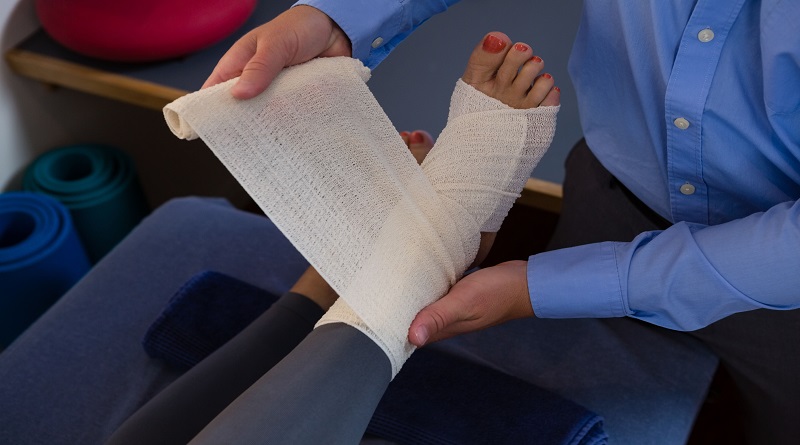Do you have excellent communication skills, empathy and want to helothers? If you decide to study an undergraduate course in Athletic and Rehabilitation Therapy then you will have the opportunity to work with athletes, team and others in improving their physical well being by preventing injury or treating injury.
What is Athletic and Rehabilitation Therapy?
Athletic and Rehabilitation Therapy uses different physical techniques and therapies in treating and the rehabilitation of athletes or those suffering with injury or pain. It is a profession that is quite new in Ireland but it is highly recognised.
What 3rd level courses are available?
Universities and colleges in Ireland are offering courses in the following subject areas:
- Athletic and Rehabilitation Therapy – AIT
- Sports Rehabilitation and Athletic Therapy – IT Carlow
Studying Athletic and Rehabilitation Therapy in college
There are two undergraduate courses available in this area as seen above. They are both undergraduate courses that are four years long and will provide you with the opportunity to gain the relevant skills and knowledge to work as an athletic rehabilitation therapist. Courses are made up of theory and practical work experience to help you gain experience and become familiar with working in the role.
In your first year, like in every course, your first year will introduce you to the basics, in this case, the basics of science. You will learn what the coming years of your course will entail. Modules and content covered in your first year will include Learning and Development for Higher Education, Mathematics for Sport and Health, Introduction to Athletic and Rehabilitation Therapy, Cell Biology, Human Physiology, Marketing and Applied Entrepreneurship and Fitness Injury Prevention. You will also look at Human Physiology and similar areas.
In your second year you will be introduced to clinical placement for the first time through student-led clinics and practical placements. The main areas of focus include injuries, diagnosis and therapies. Modules covered will include Sports Nutrition, Introduction to Sport and Exercise Psychology, Legal and Ethical Issues in Sport, Anatomy the Spine, Head, Thorax and Abdomen, Fundamental Rehabilitation Skills, Kinesiology and Biomechanics to name a few.
Third year will see you continue with clinical placements and clinics while covering modules from Diagnostic Imaging, Sport and Exercise Psychology, Injuries and Therapies and Orthotics and Strapping.
Your final year will have a main focus on the clinical placement side of things and applying your knowledge into your practice. You will also undertake a research project as well as looking at areas such a Psychology of Sports Injury and Rehabilitation. This information is based on a course layout in AIT.
Career Options
The most obvious career choice with this degree is to become an Athletic Therapist. This can provide you with the opportunity to work with teams, professional or amateur, and athletes. You may work for government bodies of sports associations, in sports clinics or even set up your own private practice as an athletic rehabilitation therapist.
There is also the option to continue your study at postgraduate level to specialise in a particular area of your interest or, with experience, move into the research field.
Skills and qualities that are important when working as an athletic therapist include excellent communication skills, interpersonal skills, excellent customer service skills, a good listener, a problem solver, patient, empathetic, time management skills, organisation skills, the ability to keep up with new research and therapies, the ability to work well with others and to have both a attention to detail and a critical thinking mind.
Related Jobs
- Athletic Therapist
- Physiotherapist
- Performance Therapist
- Nurse
- Occupational Therapist
- Acupuncturist
Further Study
Visit postgrad.ie for more information.
FAQ
Different courses and different colleges will have different entry requirements. It’s always safest to check with the individual higher education institution which is available on their websites. As a general rule Leaving Cert students should have a minimum of six subjects which should
include: Two H5 (Higher Level) grades and Four O6 (Ordinary Level) grades or four H7 (Higher Level) grades. Subjects must include Mathematics, Irish or another language, and English.
Certain QQI Awards in a relevant area may also be accepted. These change from course to course so be sure to research further.
The highest points required for a course in this area in 2020 were 448 points to study Sports Rehabilitation and Athletic Therapy in IT Carlow. The points for Athletic and Rehabilitation Therapy in AIT were 430 points.
Where can I study?
You can explore your options here.
Did you know?
- Athletics originated in Ancient Greece and can be traced back to the 9th and 10th centuries BC.
- Knee injuries are the most common injury among athletes.
- It is believed that basketball has the most reported injuries out of all sports.
Resources












Comments